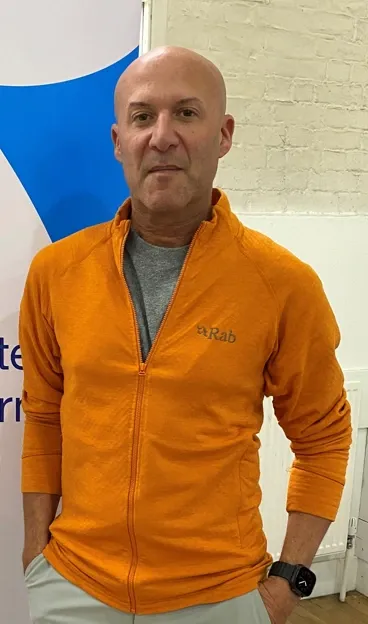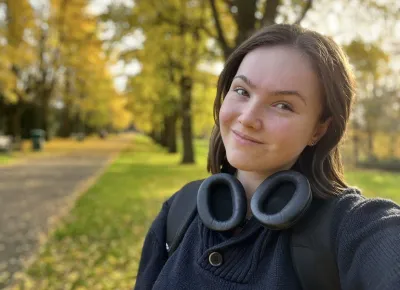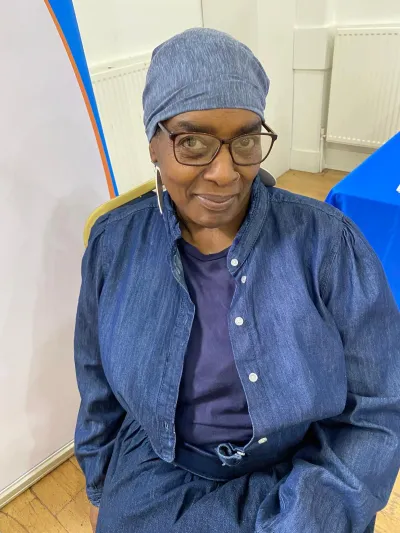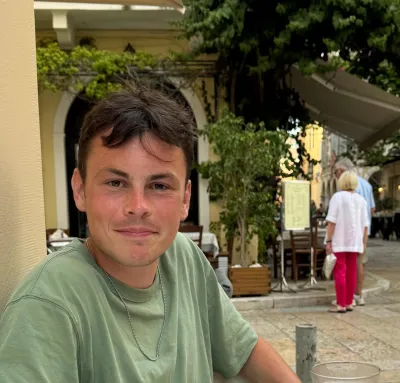We're highlighting stories from people with diabetes to raise awareness of life with diabetes and the impact of diabetes stigma and start to change the mindset.
Diabetes is a complex and serious condition, and oversimplifying what it means to live with diabetes – and why it develops – can contribute to harmful stigma.
Diabetes stigma impacts people with all types of diabetes and arises from misconceptions about the causes, management, and realities of the condition. Find out more about diabetes stigma.
Here, we share just a few voices from the diabetes community about their experiences with stigma.

Abeeda, lives with type 2 diabetes
“I sometimes feel on edge in social situations because of fears of being judged or told what I ‘should or shouldn’t eat’. Stigma has felt like a constant background noise in my life, and sometimes it’s been right in my face. I’ve worked hard to distance myself from people who make me feel negative about it – but the comments are still hurtful.
“My GP at the time of my diagnosis seemed quite judgemental in his view of my diabetes, often comparing me to others who had put their type 2 diabetes into remission. This only deepened my feelings of failure. This lack of empathy I experienced pushed me further away from seeking help. I eventually stopped attending check-ups with both my GP and hospital team – avoiding them out of fear of judgement and not wanting to be reminded of how I felt I’d failed my body and my health.
“I wish people understood that type 2 diabetes is far more complex than the stereotypes make it out to be. Because of these experiences, I actively avoid disclosing my diabetes to most people. I don’t want to be reduced to a label, because I am so much more than just “diabetic”. I’m a creative and bubbly individual – the resilience and strength from what I’ve endured defines me – not diabetes, and certainly not the stigma around it."

Robert, lives with type 1 diabetes
“When I told people I had diabetes, their reactions often shocked me. I’d hear things like, ‘Really? No way! You’re not fat enough,’ or ‘You can’t be – you don’t eat unhealthy things. You don’t look like a diabetic.’
"It’s amazing how people stereotype what a person with diabetes ‘should’ look like and how little they actually understand about what diabetes really is.
“Those sorts of comments were so awful - it’s been difficult enough to learn how to manage the diagnosis and treatments plus all the challenges it brings day to day without the added pressure of having to explain it all.”

Andy, lives with type 2 diabetes
“I personally haven’t encountered prejudice in relation to my diabetes – but honestly, that’s partially because I kept my diagnosis a secret for many years. In ways, I hold a certain degree of self-stigma. I felt embarrassed and ashamed of my type 2 diabetes diagnosis because of the promises I made to my dad.
“I had believed that my diagnosis was brought on because of my own ‘poor choices’ – so I carried a degree of guilt that I am the ‘master of my own destiny’ with my health. But really, diabetes is so complex and for our family, we carry that genetic history of type 2 diabetes – so I may have always been more susceptible.”

Modupe, a dietician from Norwich whose mother lived with diabetes
“Through my work, I see that in some communities, the stigma around diabetes is profound and can have a big impact on people’s lives. Often, this stigma starts close to home – from family members, friends, or neighbours – and then spreads through the wider community.
"This stigma can make people feel isolated or ashamed of their condition, even though diabetes is a common and manageable health issue. But when the topic becomes something, people avoid, it stops others from learning the truth, sharing their experiences, or getting the support they need to live well with diabetes.
“I recall my mother never acknowledged that she had diabetes and kept her condition very much to herself – that has a lot to do with being stigmatised and not wanting family or friends to know as she felt she would be judged.”

Mya, lives with type 1 diabetes
“Over the years I’ve faced quite a few experiences around stigma – at this point in time, it feels like facing stigma is tragically a part of my condition. Very often, people forget that a person living with a chronic condition is usually the expert, given that they do it every day.
"It makes me feel helpless sometimes – that I live in a world with a condition I didn’t ask for – and yet, I’m seen as the obstacle, the problem or the inconvenience. It’s more than just an empty comment – the impact can be long-lasting.
“Comments, looks, stares and unfair treatment can build up like unpaid bills – they can very easily become too much and can be so hard for someone who already has an uphill battle with their mental health, like me.”

Joyce, who lives with type 2 diabetes
“I often feel stigmatised by the pressure to lose weight and by the assumption that my weight was the reason for my diabetes. For years, I struggled to better manage my condition, and it was hard not to feel like I was failing.
“People would often say things like, ‘You must be big because you have diabetes,’ and hearing those comments again and again really affected how I felt about myself. What many don’t realise is that there can be other health, genetic and environmental factors involved.”

Amelia, lives with type 1 diabetes
"I wish people knew about the mental burden of living with type 1 diabetes. People assume that you check your blood sugars now and then, and you inject insulin a couple of times a day and apart from that you’re fine. But type 1 diabetes isn’t like that; it’s 24/7 and I’m constantly checking my blood sugars, and assessing, ‘can I go for that walk’ or ‘can I eat something’, or ‘how much insulin do I need now if I’m going to do some exercise later’ - it’s relentless. And because I may be reluctant to make a fuss, people just don’t understand the never-endingness of it."

Nicki, lives with type 2 diabetes
"As time has gone on I’ve become more confident in my knowledge about diabetes, because my diagnosis was so out of the blue and so it was a steep learning curve for me. So I do feel justified in challenging people when they clearly don’t have the right understanding about the condition."

Jim, who lives with type 1 diabetes
“As a person living with diabetes, I wish there was this magic power where people could instantly understand everything that will impact my blood sugar levels. Everything from exercise, stress, nerves, excitement or alcohol.
“I’ve had too many ignorant comments that can almost accumulate to one. ‘Oh, you’re diabetic, don’t collapse on me’, ‘how are you diabetic, you’re skinny’, ‘you don’t look that diabetic’, ‘you just need to inject yourself and eat loads of sugar, right?’ I think these get to me most as they are simplifying something so complex.”
Roberta, lives with type 1 diabetes
“Although stigma with my diabetes has been fairly uncommon, it doesn’t take away the impact or how hard it is to forget when it does happen. On one occasion, I experienced a minor hypo when out and I almost felt like I was being told off as someone questioned how I could ‘let this happen’. I felt really deflated and that I had failed somehow.
“Also, at the time of my diagnosis, I felt I had a lot of explaining to do, as many people assumed I had type 2 diabetes. They had little understanding of either type, but many assumptions about what had ‘caused’ mine.
"It’s the poor references we hear on TV dramas, the lack of awareness about the different factors that can contribute to type 2 diabetes, and the mislabelling of people living with diabetes in general as those who have a fondness for sweets, that makes me terribly angry.
“I’m grateful that I have many friends and family who are very supportive and understanding. I just hope more people will recognise the misconceptions and try to correct them.”
Reach out for support
If you'd like to get in touch with us, you can share your own story of diabetes stigma, or you can get in touch with us on our helpline.
You can also join our free support forum – to connect with others affected by diabetes (minimum age 13). For more information, see forum FAQs.
Find out more about what we’re doing to better understand and tackle diabetes stigma through our Strike Out Stigma campaign.
